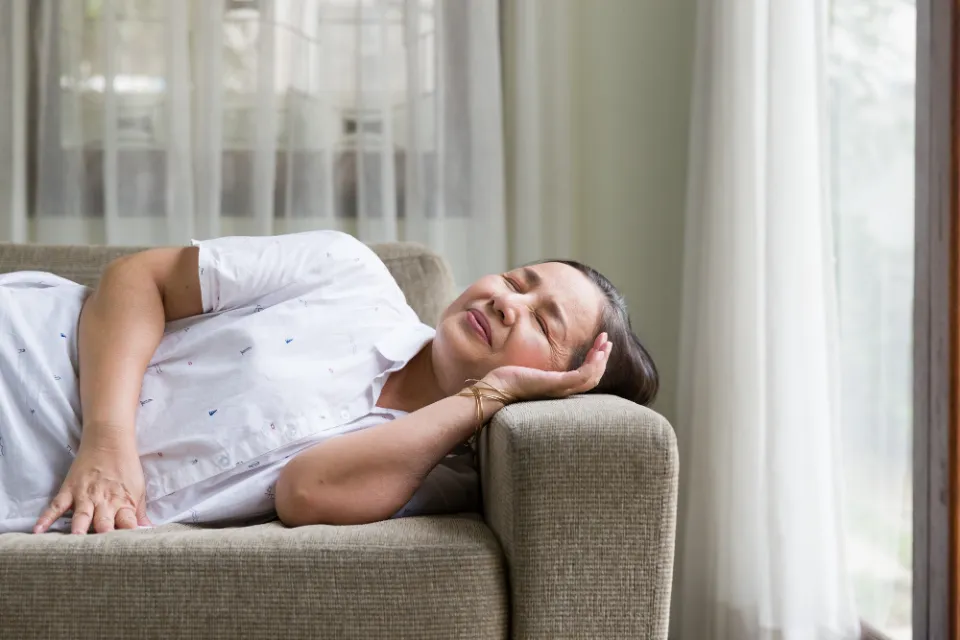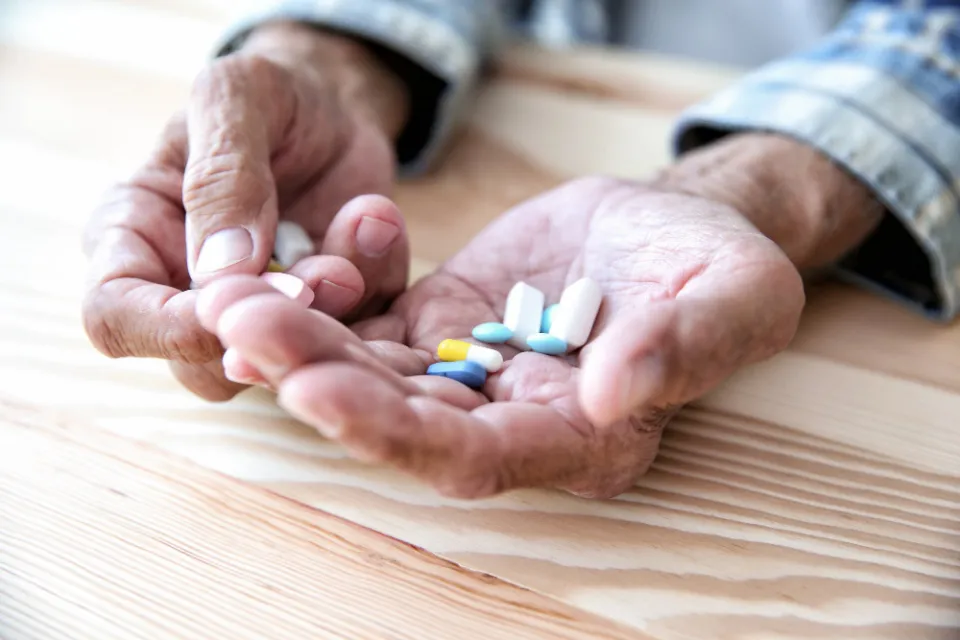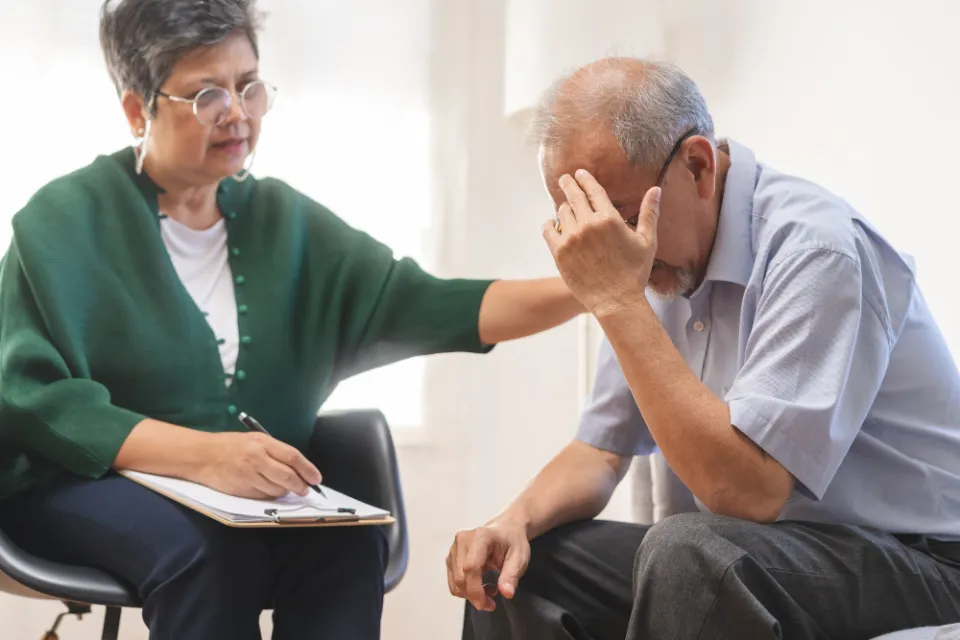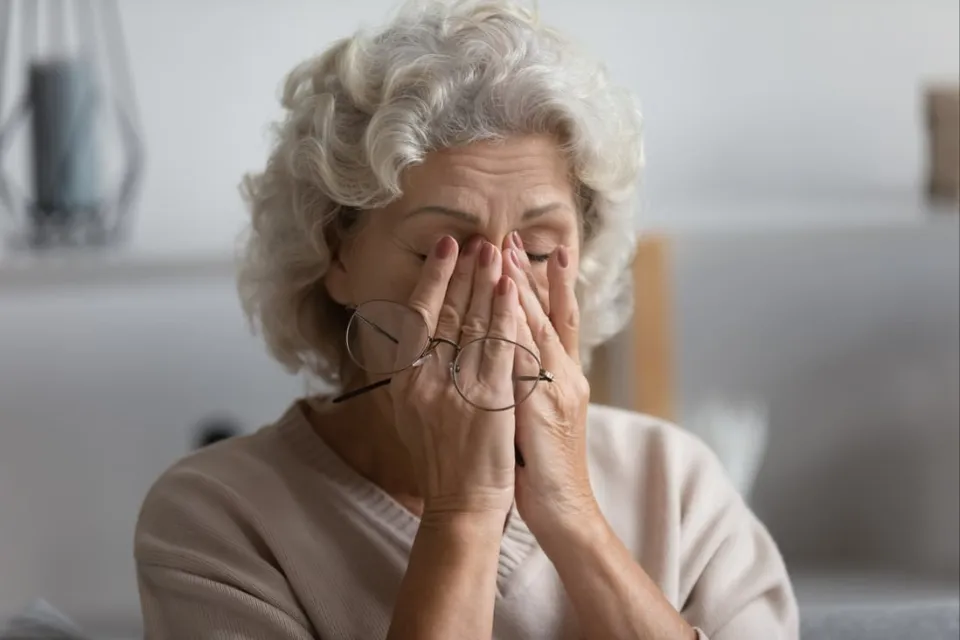The exhaustion Linda Johnson experienced after learning she had stage 4 lung cancer in the early 2020s was unanticipated.
Initially, Johnson, who is now 77, believed she was depressed. She hardly had the strength to get dressed in the morning. She struggled to get out of bed on some days.
Johnson realized something else was going on as the Indiana resident started to organize her affairs. No matter how much she slept the night before, she was still worn out. Even though she didn’t do much during the day, she still felt exhausted.
“People would remark to me, “You know, you’re getting old.” Furthermore, that was of no assistance. Because then you feel there’s nothing you can do mentally or physically to deal with this,” she says.
Many illnesses that affect older adults, such as heart disease, cancer, rheumatoid arthritis, lung disease, kidney disease, and neurological conditions like multiple sclerosis, are frequently accompanied by fatigue.
According to a 2021 review by researchers at the University of Massachusetts in the United States, it is one of the most prevalent symptoms linked to chronic illness, affecting 40% to 74 % of older people living with these conditions.
‘I put myself last’ – how breast cancer taught mum to take care of herself

This is more than just fatigue from a jam-packed day or a restless night. Even with little to no effort, the entire body experiences a persistent lack of energy.
“I feel like I have a drained battery pretty much all of the time,” wrote a user named Renee in a Facebook community for people with the uncommon blood cancer polycythemia vera. “Like being a dishrag that has been wrung out.”
Fatigue doesn’t represent “a day when you’re tired; it’s a couple of weeks or a couple of months when you’re tired”, said Dr. Kurt Kroenke is a professor at the Indiana University School of Medicine and a research scientist at the Regenstrief Institute in Indianapolis, which focuses on medical research.
When he and his colleagues asked nearly 3,500 elderly patients at a sizable primary care clinic in Indianapolis about their symptoms, fatigue was listed by 55% of them, which was more than back pain (45%) and shortness of breath (41%) combined. Musculoskeletal pain was listed by 65% of the patients.
The body’s alarm system for something wrong is fatigue, but the problem is rarely just one thing. Usually, several things need to be addressedDr Ardeshir Hashmi, Centre for Geriatric Medicine, Cleveland Clinic
Separately, a 2010 study published in the Journal of the American Geriatrics Society estimated that 31% of people 51 and older reported feeling exhausted in the previous week.
According to a 2001 study by Yale researchers, fatigue is the main cause of restricted activity in people aged 70 and older. Other studies have linked fatigue to reduced mobility, restrictions on daily activities, the beginning or worsening of disability, and an earlier death.
Often, elderly people who experience fatigue stop exercising and become deconditioned, which causes muscle loss and weakness and intensifies their fatigue.
“It becomes a vicious cycle that contributes to things like depression, which can make you more fatigued,” said Medical professor and the University of Colorado Hospital’s chief medical officer, Dr. Jean Kutner.
After learning that Johnson’s lung cancer had returned, she devised a plan. She set modest objectives for herself every morning. She would get up and wash her face one day. She would shower the following day. She would visit the grocery store the following day. She would relax following each activity.
Johnson has consistently felt exhausted in the three years since her cancer returned. But “I’m functioning better”, she said, because she’s learned how to pace herself and find things that motivate her, like teaching a virtual class to students training to be teachers and getting exercise under the supervision of a personal trainer.

“If someone has been doing OK but is now feeling fatigued all the time, it’s important to get an evaluation,” said The American Academy of Hospice and Palliative Medicine’s incoming board president is Dr. Holly Yang, a physician at Scripps Mercy Hospital in San Diego, California.
“Although it’s rarely just one thing, fatigue is the body’s alarm system that something is wrong. Usually, several things need to be addressed,” said Section chief of geriatric medicine at the Cleveland Clinic, Dr. Ardeshir Hashmi.
Among the items doctors should check:
- Are your thyroid levels normal?
- Are you having trouble with sleep?
- Are your underlying medical conditions under control, if any?
- Are you infected beneath the surface?
- Are you chronically dehydrated?
- Do you have anaemia (a deficiency of red blood cells or haemoglobin), an electrolyte imbalance, or low levels of testosterone?
- Are you getting enough protein?
- Have you been feeling more anxious or depressed recently? Could your prescription drugs be making you feel tired?
“The medications and doses may be the same, but your body’s ability to metabolise those medications and clear them from your system may have changed,” Hashmi noted that such modifications to the body’s metabolic activity are typical as people age.
You can address a variety of potential sources of fatigue. However, underlying medical conditions frequently cannot adequately explain the causes of fatigue.
In Oregon, a US state, retired nurse Teresa Goodell, 64, resides not far from Portland. She was in excellent physical condition when she went on vacation to Arizona, but all of a sudden, while hiking, she found herself exhausted and out of breath.
At an urgent care facility, she was diagnosed with an asthma exacerbation and given steroids, but they didn’t help.
Within a short period of time, Goodell was spending hours each day in bed due to extreme fatigue and weakness. Even the smallest activities exhausted her. But none of the diagnostic procedures she underwent in Arizona and later in Portland, including a chest X-ray, CAT scan, blood tests, and a cardiac stress test, revealed any anomalies.
“There was no objective evidence of illness, and that makes it hard for anybody to believe you’re sick,” she said.
Goodell started visiting long Covid websites and chat rooms for people with chronic fatigue syndrome. She now believes she has postviral syndrome as a result of an infection. The US Centers for Disease Control and Prevention list fatigue that interferes with daily life as one of the most typical signs of long-term COVID.

Dealing with ongoing fatigue can be done in a number of ways. In cancer patients, “the best evidence favours physical activity such as tai chi, yoga, walking, or low-impact exercises”, said Palliative medicine associate professor at the University of Kansas Health System, Dr. Christian Sinclair.
The goal is to “gradually stretch patients’ stamina”, he said.
With long Covid, however, doing too much too soon can backfire by causing “post-exertional malaise”. It’s frequently advised to pace one’s activities by completing only the most crucial tasks when one’s energy is at its highest and then taking a break.
“You learn how to set realistic goals,” said Dr. Andrew Esch, senior education adviser at the Center to Advance Palliative Care.
Cognitive behavioural therapy can help older adults with fatigue learn how to adjust expectations and address intrusive thoughts such as, “I should be able to do more”.
At the University of Texas MD Anderson Cancer Center, management plans for older patients with fatigue frequently include measures to address physical activity, sleep health, nutrition, emotional health, and support from family and friends.
“So much of fatigue management is about forming new habits,” said Palliative care and integrative medicine specialist at MD Anderson, Dr. Ishwaria Subbiah. “It’s critical to understand that this takes time and doesn’t occur immediately.”



